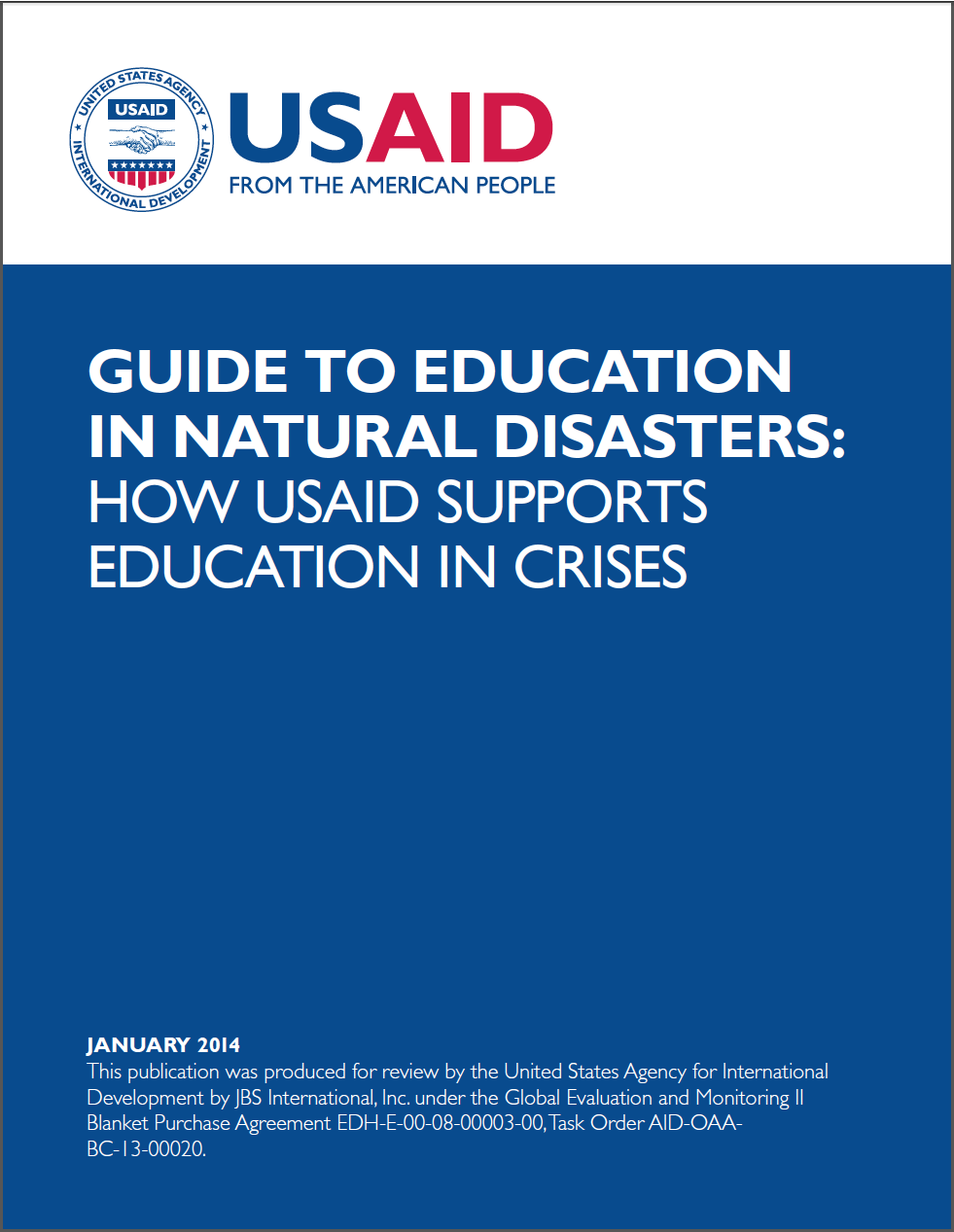Natural disasters affect millions of lives each year. From hurricanes to drought, earthquakes to tsunamis, the consequences can be overwhelming for communities that have been struck by crisis. The impact of natural disasters on education can be devastating, and each context presents different challenges. Schools are destroyed, educational infrastructure damaged, teachers and students displaced, and informational material lost. Following natural disasters, restoring educational services is paramount, as it has been proven to provide critical lifesaving and lifesustaining assistance for children. USAID, along with our national and international partners, is becoming increasingly involved in the education response at the preparedness, relief, and recovery phases. We have learned some important lessons along the way:
- First, that any response requires a well-coordinated, multi-sector, inter- and intra-agency approach that empowers communities and nations, from relief and recovery on to development;
- Second, that traditional relief efforts, including search and rescue, health, food, and shelter, are increasingly complemented by what we have now come to know as the “fourth pillar” of humanitarian aid—education;
- Third, that the aftermath of natural disasters provides an opportunity to better address inequities related to education that existed prior to the event, be they related to gender, disability, ethnicity, or religion;
- Finally, that we should not wait until there is a disaster to begin planning. Some of the most important work begins early, and we can do a great deal in the education sector to support preparedness and contingency planning at the national, regional or local level, as well as by supporting disaster risk reduction activities in schools. Another important lesson learned is that the aftermath of natural disasters provides an opportunity to better address the inequities related to education prior to the event, be they gender, disability, ethnicity, or religious.
USAID recognizes the importance of providing equitable access to education in crisis and conflict environments. In view of the importance of the education response during natural disasters, Office of Education in the Bureau for Economic Growth, Education, and Environment (E3/ED) developed this guide to provide the basics—including tools, principles, and approaches—from which to build our programs. We hope this guide will serve to inform educational activities in natural disaster preparedness and response initiatives throughout our countries of operation.








Comment
Make a general inquiry or suggest an improvement.